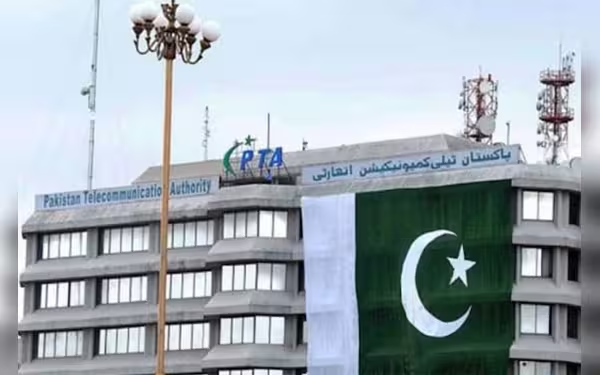Friday, October 4, 2024 07:33 AM
PTA Chairman Highlights Global Internet Restrictions Amid Local Curbs
- PTA ready to unblock X upon government orders.
- Internet restrictions not unique to Pakistan.
- Security concerns drive internet shutdowns globally.
 Image Credits: dailytimes_pk
Image Credits: dailytimes_pkPTA Chairman emphasizes global internet restrictions, asserting compliance with government directives on social media access.
The issue of internet restrictions has become a significant topic of discussion in Pakistan, especially in light of recent events. The Pakistan Telecommunication Authority (PTA) has been at the forefront of these discussions, particularly regarding the blocking and unblocking of social media platforms. Major General (retd) Hafeezur Rehman, the chairman of the PTA, has made it clear that the authority will comply with government directives concerning internet access.
During a recent statement in Islamabad, Rehman emphasized that the PTA is prepared to unblock the social media platform X, formerly known as Twitter, as soon as the government gives the green light. He stated, "If the government or the Ministry of Interior orders us to block X, we are bound to follow the instruction without raising any questions. We are ready to reopen the platform the day the government says so." This highlights the PTA's role as an enforcer of government policy rather than an independent decision-maker.
Rehman also pointed out that internet restrictions are not exclusive to Pakistan. He noted that similar actions have been taken in various countries across Asia. For instance, he mentioned that in 2022, India imposed internet shutdowns 24 times, while Pakistan did so only once. The situation escalated in 2023, with India enforcing 116 shutdowns. Rehman further referenced incidents in France and Bangladesh, where internet access was restricted due to security concerns. He remarked, "While we don’t support these actions, every country has security concerns that the government must address. National security is a necessity." This perspective invites readers to consider the broader context of internet governance and security.
Addressing the specific case of internet restrictions in Panjgur, Balochistan, Rehman stated, "When I was asked about the Panjgur shutdown, I said to consult the relevant corps commander or the Ministry of Interior. We will lift the restrictions when instructed, as decisions on national security are made by the government and the Ministry of Interior." This indicates that the PTA is not solely responsible for these decisions, but rather acts on the guidance of higher authorities.
Importantly, Rehman clarified that security agencies have not officially requested the PTA to shut down the internet or social media platforms. He explained that such directives typically come from the courts or the Ministry of Interior. For example, during the MDCAT exams, the PTA was asked to suspend internet services but refused to comply. Similarly, a request from the Federal Public Service Commission (FPSC) for an internet suspension was also declined. This refusal underscores the PTA's commitment to maintaining internet access during critical times.
The dialogue surrounding internet restrictions in Pakistan raises essential questions about the balance between national security and individual freedoms. While the PTA operates under government directives, the implications of these actions on citizens' rights to access information and communicate freely cannot be overlooked. As the digital landscape continues to evolve, it is crucial for authorities to consider the long-term effects of internet curbs on society. The challenge lies in ensuring that security measures do not infringe upon the fundamental rights of individuals, fostering a digital environment that is both safe and open.













